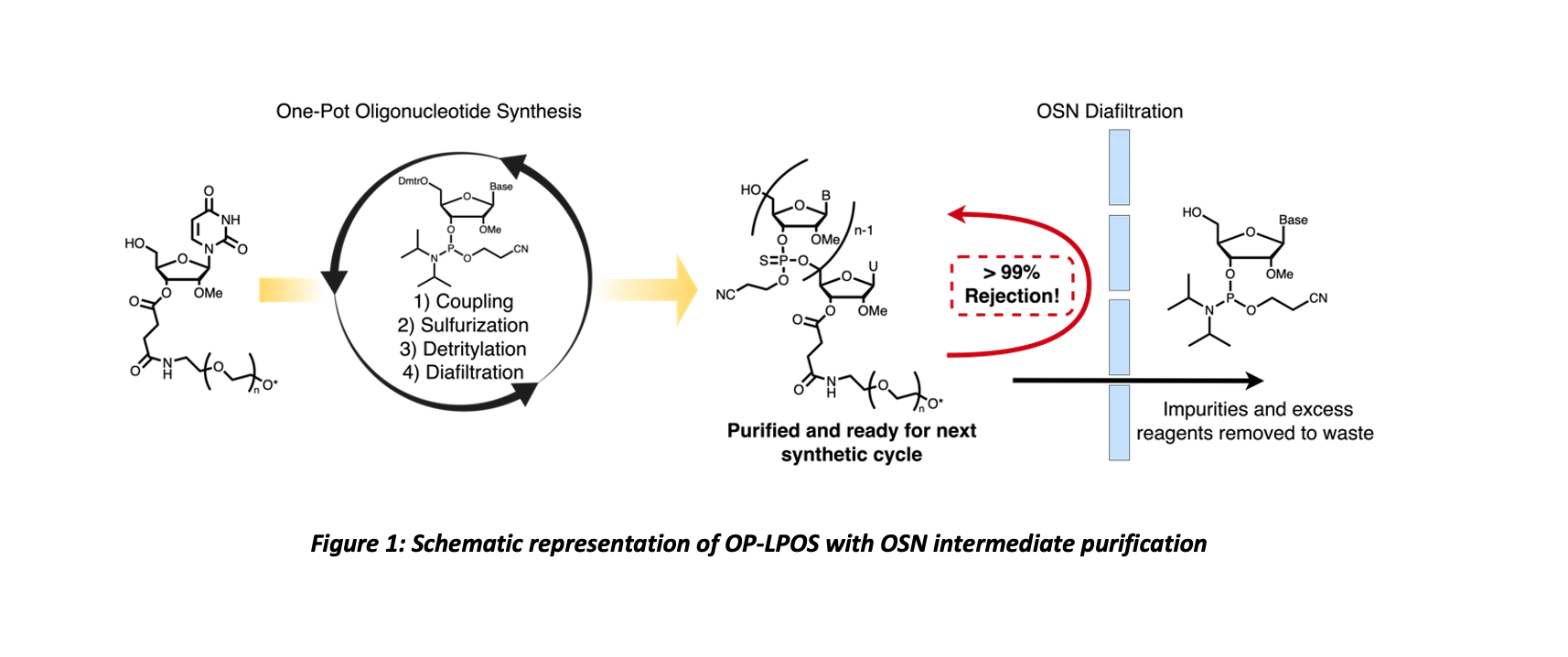2023 AIChE Annual Meeting
(485a) Scalable One-Pot Liquid Phase Oligonucleotide Synthesis Enhanced By Organic Solvent Nanofiltration
Current LPOS methods require a minimum of 2 reaction steps and 2 separation steps by either precipitation, liquid-liquid extraction or membrane filtration. In this work a one-pot liquid phase oligonucleotide synthesis (OP-LPOS) method was developed which allows sequential one-pot coupling, sulfurization and deprotection followed by a single membrane separation step per nucleotide extension cycle. In-line reaction and purification monitoring were performed by HPLC to ensure reactions and filtration go to completion. The growing oligonucleotide is reversibly tethered to a 5 kDa 4-arm branched PEG soluble support to improve separation. An Inopor ceramic nanofiltration membrane (1 nm pore size, 750 Da MWCO) selectively retains the growing PEG-oligo and permeates the smaller reaction by-products and impurities. Combining OP-LPOS with membrane separation is beneficial as it reduces the number of unit operations and solvent consumption. Phosphorothioate oligonucleotides were produced using this method with high stepwise filtration yields (84-94%) and close to quantitative product rejection by the membrane (99.9%). Products were cleaved from PEG and analysed by LC-MS.
This process is readily scalable due to the use of LPOS, standard phosphoramidite reagents and commercially available soluble support and nanofiltration membrane. Reactions and filtrations are monitored using by NMR, MS and HPLC. The use of a one-pot synthesis reduces the number of reactions and separations each cycle which results in higher overall yield and reduced solvent consumption compared to other LPOS protocols.
